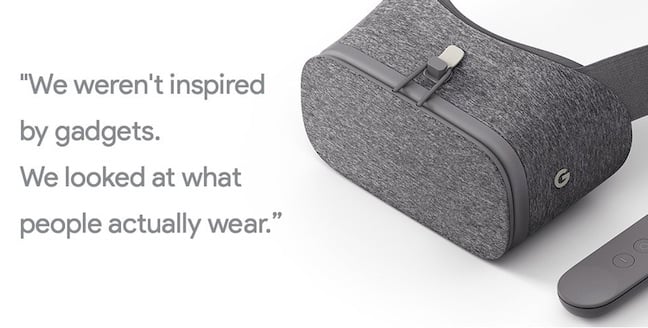This article is more than 1 year old
Google's Big Hardware Bet: Is this what a sane business would do?
You're an algorithms company, Larry!
Analysis Google is placing a "Big Bet" on consumer hardware, the company screams in a new blog post. Presumably this time it really means it.
Two thousand staff from HTC's phone division will be heading off to the Chocolate Factory, their winning Golden Tickets in hand. Google didn't capitalise "Big Bet" but then it really didn't have to. The $1.1bn deal is about buying some proven phone talent, which made the current Pixel and imminent Pixel phones for Google.
For its part, HTC insists it will continue to be able to make phones without those 2,000 employees.
"HTC will continue to have best-in-class engineering talent, which is currently working on the next flagship phone," the Taiwanese company maintains. This raises one or two questions. Are the 2,000 the second-best-in-class, then? How many will be left behind at HTC, and how exactly will HTC and Google choose which lucky 2,000 get to pass through the famous Wonka Gates? Will they be chosen by ballot? It's got to be a chocolate bar.
After years of low-profile limited distribution (selling midrange Nexus through online retail), Google's ambitions to be a global Tier 1 phone maker became impossible to avoid. Saturation advertising reminded everyone Google made a phone: it spent £100m in the UK alone.
But the problems remain, the biggest being that Google is still the punchline to a joke in consumer electronics. If hardware is in Apple's DNA it just doesn't seem to be in Google's at all. It's an algorithms company. Maths, not engineering.
"Despite acquisitions of Motorola and Nest and a strong hardware push a year ago, Google has not yet been successful at selling consumer devices" is how analyst Forrester puts it diplomatically today. Android TV flopped, Google came back, and it flopped again.
Tony Fadell's Nest was highly thought of when Google bought it in 2014 and it didn't release another product for over two years. Lumbering laggards in the "connected home" space, like the Koreans, streaked past. Nest became notorious for chaotic management. Something similar happened with AR. I recall early, impressive demos of Project Tango at Mobile World Congress three years ago. It wasn't just a spec for a baseline AR-capable phone, it was partnerships with the culture sector too. Earlier this year Google dropped the "Project" from the name, then dropped the "Tango". Knockabout stuff.
I ran through Google's big consumer launch a year ago here. At the event, Google didn't even seem aware how ridiculous it sounded, with this one of my favourite examples of dumb marketing by any technology company, ever:

It's one thing to fail at being an expensive Logitech or Belkin. Another to take on Samsung in the global phone market. The challenges to becoming a Samsung rival are so great you wonder why they are trying at all.
The smart money backs the commoditisation trend with the Chinese having a cost and technology advantage. Samsung has to spend enormously ($15bn a year in marketing) to maintain its presence, and it surrendered its margins three years ago (margins fell from the mid-teens to single digits). Phone makers' margins are 2-4 per cent. So Huawei and BBK don't have to "win" for Samsung (or Google) to "lose", they just have to make being in the phone business sufficiently unprofitable that nobody other than Apple can afford to be in it.
If there's a route to success, perhaps it's through volume – establishing Pixel as a midrange brand that becomes ubiquitous. Do you think that sounds a Google-y plan? Me neither.
Perhaps more will be explained next month, when the Pixels are due to be revealed. ®

